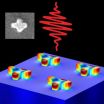(Press-News.org) Quebecers are particularly hostile toward the development of shale gas, but this aversion is driven less by 'not in my backyard' (NIMBY) attitudes than 'not in anyone's backyard (NIABY), according to a comparative study of 2,500 Quebecers and Americans conducted by Éric Montpetit and Erick Lachapelle of the University of Montreal's Department of Political Science. Professors Barry G. Rabe of the University of Michigan and Christopher P. Borick of Muhlenberg College co-led the study in the United States.
The study, commissioned by Quebec's Ministry of the Environment, has provided insight into why Quebecers oppose the development of shale gas so fiercely. According to the study, political-cultural traits are the source of bias in the perception of the issues. "The study was conducted among 1,500 Quebec respondents, a large proportion of whom were sampled from the Montérégie region, where there are shale gas development projects, and 1,000 respondents from two U.S. states, Michigan and Pennsylvania," Montpetit explained. "Our findings showed that opposition is much stronger in Quebec than in the United States, and this is true across the province, regardless of where one lives. The main reason is not related to a lack of information or proximity to existing wells. Their aversion is rather due to the importance of political values that shape the public's understanding of issues more generally."
In the study, two values help explain differences in in public perception: egalitarianism and individualism. Egalitarians have high expectations regarding social justice and equality between citizens, while individualists value personal success. "We found that egalitarians are more likely to perceive risks related to hydraulic fracturing methods used to extract gas from shale, while individualists are more likely to perceive the benefits," Montpetit said. "This is true in Quebec and the United States. That is to say, Quebecers are no less rational in their perceptions of the issue. The difference is that there are more egalitarians here than south of the border. This explains why opposition to shale gas is so strong in Quebec compared to what we find in the United States."
The way journalists talk about the issues related to shale gas development has also played a role in perceptions. "There has been little coverage in the media about the fact that Quebecers are large gas consumers and that the gas is currently imported from Alberta. Developing this sector would allow us to be more independent in terms of energy. It is an important argument that has been mostly ignored," Montpetit said. "Much discussion has focused on large multinationals from western Canada or abroad who come to explore and pay little in terms of royalities to the Quebec government." This way of talking about shale gas resonates with egalitarian values. Egalitarians are sensitive to this type of discourse, which refers to issues of social justice and equality. "Egalitarians say 'we pay for the cost of extraction, and the profits go into the pockets of big corporations, who are often from outside the province!' This causes resentment, causing them to be more likely to be concerned about environmental risks."
The problem is that we don't exactly know about the possible adverse effects of shale gas development. "Studies from the U.S. have reported methane leaks in Pennsylvania, but in other places, like Arkansas, evidence is mixed. Soil, rock, and groundwater characteristics are very important for determining risks. In order to better evaluate these risks for Quebec, these characteristics must be known. But there has so fare been very little exploration in the province, which prevents us from knowing the real risks of shale gas extraction on our territory," Montpetit said.
The study shows however that new information from a credible source would likely change opinions in the United States and Quebec. "A significant proportion of Quebec egalitarians would reduce their fears about the risks if the Office of Public Hearings on the Environment and credible scientists endorsed a report showing that the risks of shale gas extraction were low," Montpetit said. "However, such a change in the perception of risks would be insufficient to transform the high degree of reluctance of Quebecers into majority support. Note that opposition in Quebec toward shale gas extraction is currently at 70%. The main reason for this opposition is the great fear associated with potential risks. Credible sources would reduce this fear, but opposition would remain above 50%. On the other hand, in the United States, particularly in Pennsylvania, opinion is almost equally divided between those in favour and those against. A reassuring study about the risks of shale gas extraction would therefore have greater impact in Pennsylvania than in Quebec."
INFORMATION:
Notes:
The University of Montreal is officially known as Université de Montréal. Media are welcome to use the information provided in this Q&A document to inform their own reporting. The answers provided are full citations given by Professor Montpetit and can be quoted as such. Professor Lachapelle is available for interview. He can be contacted at Erick.lachapelle@umontreal.ca, cell 514-441-4888, or via the university's media relations service (details below.)
Reference: "L'opinion des Québécois sur les gaz de schiste : une comparaison avec la Pennsylvanie et le Michigan" (in French only) http://ees-gazdeschiste.gouv.qc.ca/wordpress/wp-content/uploads/2013/06/Rapport-etude-S4-3a_CPDS_2.pdf
Are Quebecers irrationally opposed to shale gas?
University study shows strong sense of egalitarianism skews perception of risks and benefits
2014-06-11
ELSE PRESS RELEASES FROM THIS DATE:
Findings may advance iron-rich, cadmium-free crops
2014-06-11
ITHACA, N.Y. – With news reports of toxic, cadmium-tainted rice in China, a new study describes a protein that transports metals in certain plants and holds promise for developing iron-rich but cadmium-free crops.
Iron and cadmium are both found in soil and are interchangeably taken up by iron transporters in plants. Pollution and heavy fertilizer use have increased soil cadmium levels in China, for example. In humans, cadmium can damage internal organs and cause cancer. At the same time, iron is an essential nutrient for plants and humans. Iron deficiency affects 30 ...
Manipulating and detecting ultrahigh frequency sound waves
2014-06-11
An advance has been achieved towards next generation ultrasonic imaging with potentially 1,000 times higher resolution than today's medical ultrasounds. Researchers with the U.S. Department of Energy (DOE)'s Lawrence Berkeley National Laboratory (Berkeley Lab) have demonstrated a technique for producing, detecting and controlling ultrahigh frequency sound waves at the nanometer scale.
Through a combination of subpicosecond laser pulses and unique nanostructures, a team led by Xiang Zhang, a faculty scientist with Berkeley Lab's Materials Sciences Division, produced acoustic ...
Famine fear won't sway minds on GM crops
2014-06-11
ITHACA, N.Y. – A sack-hauling time traveler from the 21st century lands in an Irish potato field in 1849, just before a terrible famine, and asks: If you thought genetically modified potatoes could avert late blight disease, spare a million countrymen from starvation and keep another million from emigrating off the Emerald Isle, would you plant these newfangled spuds?
Fast forward to the Internet Age, when communication researchers ran 859 U.S. grocery shoppers through a similar thought experiment: Half the subjects in an online survey read the story of the 1850s Irish ...
Benaroya Research Institute scientists identify drivers of rheumatoid arthritis
2014-06-11
(June 11, 2014 Seattle, Wash.)
Researchers at Benaroya Research Institute at Virginia Mason (BRI) used cutting-edge tetramer technology developed at BRI to find the T cells that drive rheumatoid arthritis (RA). "By using tetramer technology, we were able to examine whether T cells in people with rheumatoid arthritis were increased in number or were unique in other ways," says BRI Associate Director Jane Buckner, MD, who led the study with BRI Tetramer Core Laboratory Manager Eddie James, PhD. The findings were recently reported online in Arthritis & Rheumatology.
This ...
New strategies to combat MRSA in hospitals
2014-06-11
CHICAGO (June 11, 2014) – New guidelines aim to reduce the prevalence of methicillin-resistant Staphylococcus aureus (MRSA), improve patient safety and prioritize current prevention efforts underway in hospitals. This drug resistant bacterium is a common source of patient morbidity and mortality in U.S. hospitals, causing nearly twice the number of deaths, significantly longer hospital stays and higher hospital costs than other forms of the bacteria.
The strategies were published in the July issue of Infection Control and Hospital Epidemiology and produced in a collaborative ...
Targeted mass killings can be prevented
2014-06-11
New Rochelle, NY, June 11, 2014–Disagreeing with comments made by Richard Friedman in a recent New York Times op-ed piece, Mary Ellen O'Toole, PhD, Senior FBI Profiler/Criminal Investigative Analyst (ret.), states that there is "a critical and significant difference" between being able to predict and prevent mass shootings. Dr. O'Toole, who is Editor-in-Chief of Violence and Gender, calls on the media to stop using the names of mass murders, which only fuels their desire for fame and is "a very powerful motivator," in a Perspective in the new peer-reviewed journal from ...
Guidelines needed for creating germ cells in vitro, Cornell, JAX scientists state
2014-06-11
Research aimed at developing germ cells—the progenitors of eggs and sperm—in vitro should be held to especially rigorous scientific standards, a distinguished team of reproductive biologists declares in the journal Cell.
In the article, authors John Schimenti, Ph.D., of Cornell University and his Jackson Laboratory colleagues, Mary Ann Handel, Ph.D., and John Eppig, Ph.D., note that because "germ cells are the ultimate stem cells," laboratories are racing to develop these cells in vitro for assisted reproduction.
Yet the researchers claim that no one has yet conclusively ...
Mining data archives yields haul of 'red nuggets'
2014-06-11
The world of astronomy has changed. An astronomer used to have to travel to a remote location and endure long, cold nights, patiently guiding a telescope to collect precious photons of light. Now, a proliferation of online archives allows astronomers to make discoveries from the comfort of their own offices.
By mining such archives, a team of astronomers led by Ivana Damjanov of the Harvard-Smithsonian Center for Astrophysics (CfA) has found a treasure trove of "red nugget" galaxies. These galaxies are compact and densely packed with old, red stars. Their abundance provides ...
Contextuality puts the 'magic' in quantum computing
2014-06-11
A new theoretical advance explains where the power of quantum computation comes from, and will help researchers design and build better computers and algorithms.
The strange properties of quantum mechanics give quantum computers the potential to perform some computations exponentially faster than conventional computers. But where the extra power comes from – and how best to take advantage of it – is in many ways still an open question.
A new paper in the journal Nature by CIFAR Fellow Joseph Emerson of the program in Quantum Information Science, along with colleagues ...
Gigantic explosion buried in dust: ALMA probes environment around gamma ray bursts
2014-06-11
Using the Atacama Large Millimeter/submillimeter Array (ALMA), a team of researchers reports the first-ever detection of molecular gas -- the fuel for star formation -- in two galaxies that were previously rocked by gamma ray bursts (GRBs), the brightest explosions in the Universe. These new observations revealed that the molecular gas was concentrated toward the centers of the galaxies, while the GRBs occurred in unusual environments that were surprisingly bereft of gas yet rich in dust.
The researchers speculate that the dearth of molecular gas around the GRBs was due ...
LAST 30 PRESS RELEASES:
Increasing the number of coronary interventions in patients with acute myocardial infarction does not appear to reduce death rates
Tackling uplift resistance in tall infrastructures sustainably
Novel wireless origami-inspired smart cushioning device for safer logistics
Hidden genetic mismatch, which triples the risk of a life-threatening immune attack after cord blood transplantation
Physical function is a crucial predictor of survival after heart failure
Striking genomic architecture discovered in embryonic reproductive cells before they start developing into sperm and eggs
Screening improves early detection of colorectal cancer
New data on spontaneous coronary artery dissection (SCAD) – a common cause of heart attacks in younger women
How root growth is stimulated by nitrate: Researchers decipher signalling chain
Scientists reveal our best- and worst-case scenarios for a warming Antarctica
Cleaner fish show intelligence typical of mammals
AABNet and partners launch landmark guide on the conservation of African livestock genetic resources and sustainable breeding strategies
Produce hydrogen and oxygen simultaneously from a single atom! Achieve carbon neutrality with an 'All-in-one' single-atom water electrolysis catalyst
Sleep loss linked to higher atrial fibrillation risk in working-age adults
Visible light-driven deracemization of α-aryl ketones synergistically catalyzed by thiophenols and chiral phosphoric acid
Most AI bots lack basic safety disclosures, study finds
How competitive gaming on discord fosters social connections
CU Anschutz School of Medicine receives best ranking in NIH funding in 20 years
Mayo Clinic opens patient information office in Cayman Islands
Phonon lasers unlock ultrabroadband acoustic frequency combs
Babies with an increased likelihood of autism may struggle to settle into deep, restorative sleep, according to a new study from the University of East Anglia.
National Reactor Innovation Center opens Molten Salt Thermophysical Examination Capability at INL
International Progressive MS Alliance awards €6.9 million to three studies researching therapies to address common symptoms of progressive MS
Can your soil’s color predict its health?
Biochar nanomaterials could transform medicine, energy, and climate solutions
Turning waste into power: scientists convert discarded phone batteries and industrial lignin into high-performance sodium battery materials
PhD student maps mysterious upper atmosphere of Uranus for the first time
Idaho National Laboratory to accelerate nuclear energy deployment with NVIDIA AI through the Genesis Mission
Blood test could help guide treatment decisions in germ cell tumors
New ‘scimitar-crested’ Spinosaurus species discovered in the central Sahara
[Press-News.org] Are Quebecers irrationally opposed to shale gas?University study shows strong sense of egalitarianism skews perception of risks and benefits




